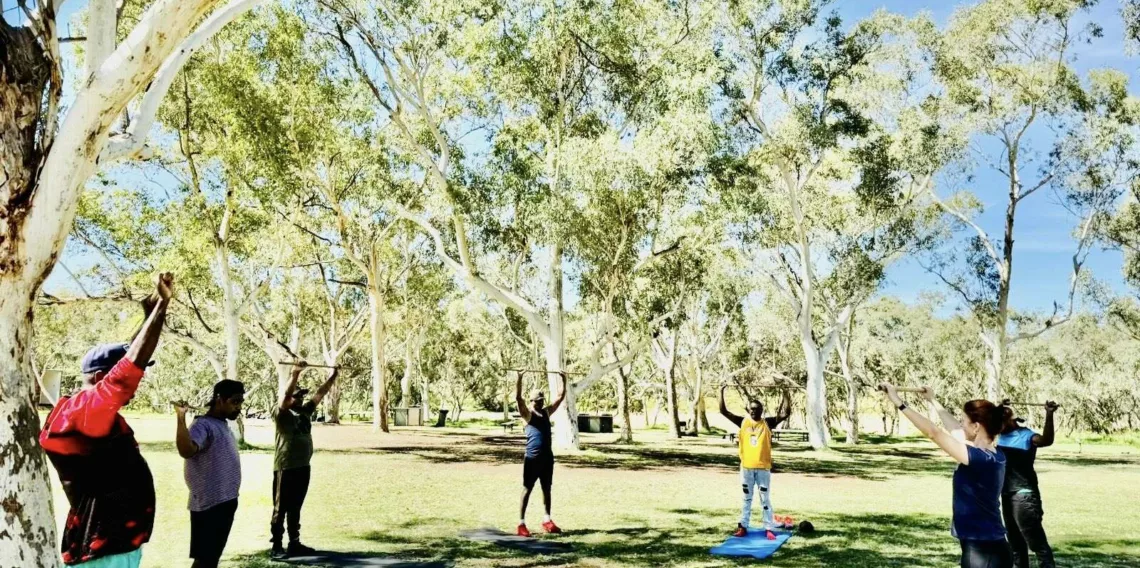Roadmap for Inclusive Sport in Central Australia

A new feasibility study is guiding Reclink’s return to the Northern Territory, putting local Aboriginal voices at the centre.
Reclink’s re-establishment of operations in the Northern Territory is being guided by a detailed feasibility study that centres the voices of local Aboriginal communities and highlights the underlying barriers to participation in sport and recreation.
The study, conducted in partnership with the Central Australian Aboriginal Congress (CAAC) and supported by the Phillips Foundation and the Northern Territory Government, involved wide-reaching consultation across Mparntwe (Alice Springs).
The report found that culturally safe, co-designed, and trauma-informed programs are essential to building genuine engagement and long-term impact.
Reclink began delivering programs in the Northern Territory in 2006, following a meeting led by founder Peter Cullen at the Alice Springs Council. With support from local volunteers and later part-time staff, Reclink ran community-based sport and recreation activities until 2013, when operations ceased due to federal funding cuts. Reclink commissioned a feasibility study to better understand the current landscape, identify service gaps, and ensure any future programs are relevant, effective, and driven by local needs.
“We didn’t want to return with a one-size-fits-all approach,” said Richard Allanby, Reclink’s Operations Manager for Tasmania, Northern Territory, Western Australia and South Australia. “This report has given us the insight we need to work more effectively with local stakeholders and design programs that respond to and respect real community priorities.”
Reclink is now working to implement the study’s recommendations.
Key priorities include:
- Delivering flexible, non-competitive programs that support emotional safety and social inclusion
- Co-designing programs with Aboriginal communities and embedding cultural safety throughout
- Creating place-based activities that encourage intergenerational participation
- Supporting leadership development opportunities for Aboriginal youth
- Improving coordination among local service providers and sports organisations
One of the programs Reclink NT is currently running is Holistic Healthy Healing Habits initiative, launched in May at the Alice Springs Correctional Centre, sponsored by the NT Government. It involves collaboration with the Mental Health Association of Central Australia, Mental Illness Fellowship of Australia NT, Drug and Alcohol Services Australia (DASA), and Casa Services, alongside many other organisations.
Lucinda Moody, Reclink NT State Manager, said Reclink has initiated a range of programs across Mparntwe (Alice Springs), with a focus on working alongside community and other agencies to reach people who are often excluded from mainstream sport and recreation.
Mr Allanby says the lessons learned from the NT study will also inform Reclink’s broader approach to working with Aboriginal communities across Australia.
“These kinds of projects give us a better understanding of people’s lived realities, not just in Central Australia, but nationally,” he said.
Reclink’s return has also been supported by the Reclink Friends of Alice group.


